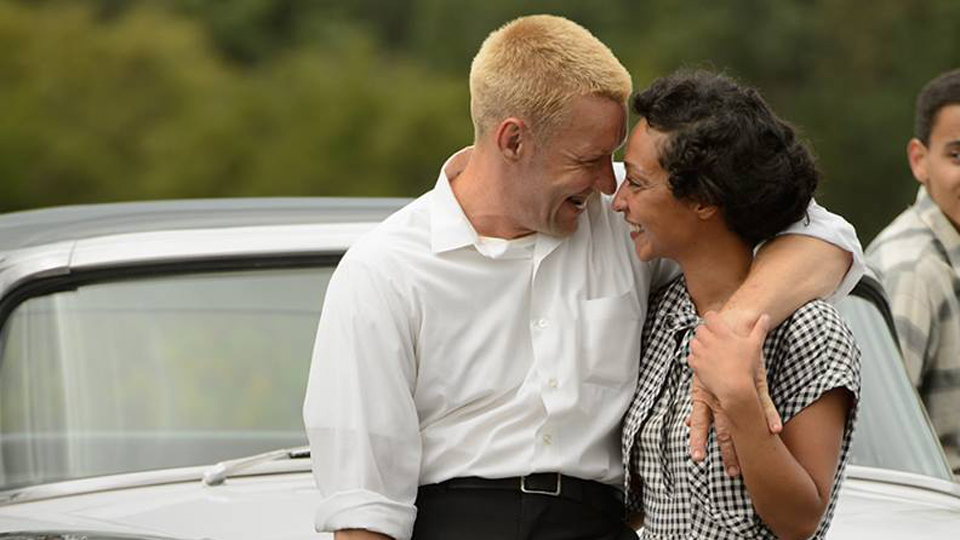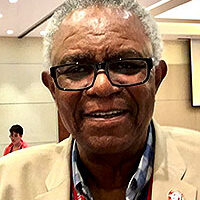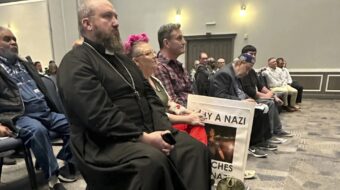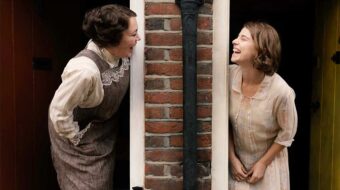
Loving is the story of Mildred and Richard Loving—how they fought for and won their right to love, and in the process gained a courageous victory against racism in their state that changed our nation.
The Commonwealth of Virginia passed its first law against “miscegenation” under slavery. It took over 100 years (1967) before it was declared unconstitutional.
It was the case of Mildred and Richard Loving, a modest interracial working-class couple, born and raised in a picturesque rural town called Central Point, Virginia, that won the day. Mildred Jeter and Richard Loving grew up as neighbors there, an area reportedly “where blacks and whites mixed freely” even under Jim Crow.
Their town was in Carolina County, considered part of the Greater Richmond area.
The movie Loving was produced and directed by Jeff Nichols, who does a credible job depicting the mood, the language, the fashion and cars of the 1950s in that part of the South. I spent part of my summers in North Carolina around those years as a kid. Watching Loving was like being there again. The beautiful countryside and the scene with the teens drag racing their cars down a country road dust a-flying, brought back old memories.
But the movie was different from what I experienced. In Central Point blacks and whites competed together in drag racing. The team for which Richard Loving was the ace mechanic was African American, and they seemed to win just about every race.
At his side was his girlfriend Mildred Jeter, brilliantly played by Ruth Negga. Negga’s portrayal was so lovely. She charmed the camera through the whole film. Part Irish and part Ethiopian, she resembles the real Mildred quite a bit.
When she embraced her boyfriend after his team won the race, all heads turned, including members of the all-white opposing team members. Richard Loving is played faithfully by Joel Edgerton, an Australian actor who captured the Virginia accent and the modest soft spoken manner down to a “t.” The winning race car was driven by Mildred’s brother, who was a good friend of Richard’s. They were a team. They all grew up with each other. In fact, Richard’s father worked for Mildred’s father at some point in the past.
Jeff Nichols, the director, is a Southerner himself. He is quoted as saying that the Virginia accent is unique and that American actors have their own versions of a Southern accent coming from different states all over the South. But Nichols wanted to train his actors to sound authentically from that particular part of the South.
Richard and Mildred were in love and decided to marry. They had to drive to Washington, D.C., to legally marry. They came home, and Richard, a construction worker, built them a home on an acre lot in Central Point, the place they loved.
The most dramatic scene in the movie is its depiction of the Gestapo-like raid on their house by the local Sheriff Brooks in the middle of the night. The Lovings were snatched from their bed, and Mildred Loving protested, pointing to their marriage license hanging on the wall and declaring “we are married.” The sheriff (Marton Csokas) scolded back, “That’s no good here.” On July 11, 1958, they were hauled off to jail in the middle of the night, for being married.
When they went to trial the judge told them that segregation was “God’s will.” “He put people of different races on different continents so that they couldn’t mix.” The verdict was to exile them from Virginia for 25 years. If the couple violated the judge’s order they faced 25 years in prison. They left their home town, the place they loved, and moved to Washington, D.C.
When the harder city life got to be too much they packed up their three kids and quietly retuned to their home.
After John F. Kennedy was elected, Mildred decided to write a letter to Attorney General Robert F. Kennedy to ask for help. They wanted to go home and live in peace. RFK wrote back and said he could not help them but got them in touch with the ACLU. That eventually led to a case that they lost in the Virginia courts but appealed to the U.S. Supreme Court.
When the ACLU lawyers asked Richard what he wanted them to tell the Supreme Court justices, he simply said, “Tell them I love my wife.” And they passed along Richard’s message.
When the landmark case came up before the Warren Supreme Court in 1967 it was unanimous: All nine justices ruled in the Lovings’ favor against the Commonwealth of Virginia. Interracial marriage was declared legal in every state.
This film shows an important piece of U.S. Civil Rights history, and tells the story impressively well, one that is still relevant—how unity, hope and determined action can defeat racism and ignorance.
The Loving case was cited in 2013 as part of the argument before the Supreme Court in support of same-gender marriage.
Sadly, Richard Loving was killed by a drunk driver in 1975 when he was only 41. Mildred died of pneumonia in 2008 at the age of 68.
Loving Day is celebrated around the country on June 12th.
Go see Loving even if you do know the story. The acting is superb and sensitive. It has received rave reviews and there is Oscar talk especially about Ms. Negga’s performance. It will touch your heart and inspire you to get involved. That is so important today with Donald Trump about to get the keys to White House.
Go see it before it disappears.
Director: Jeff Nichols
Writer: Jeff Nichols
Stars: Ruth Negga, Joel Edgerton, Will Dalton
PG-13 | 123 min
An earlier review appeared in PW here.

MOST POPULAR TODAY

“Trail of Tears Walk” commemorates Native Americans’ forced removal

Hold the communism, please: SFMOMA’s Diego Rivera exhibit downplays artist’s radical politics

After months of denial, U.S. admits to running Ukraine biolabs

‘Warning! This product supports genocide’: Michigan group aims to educate consumers







Comments